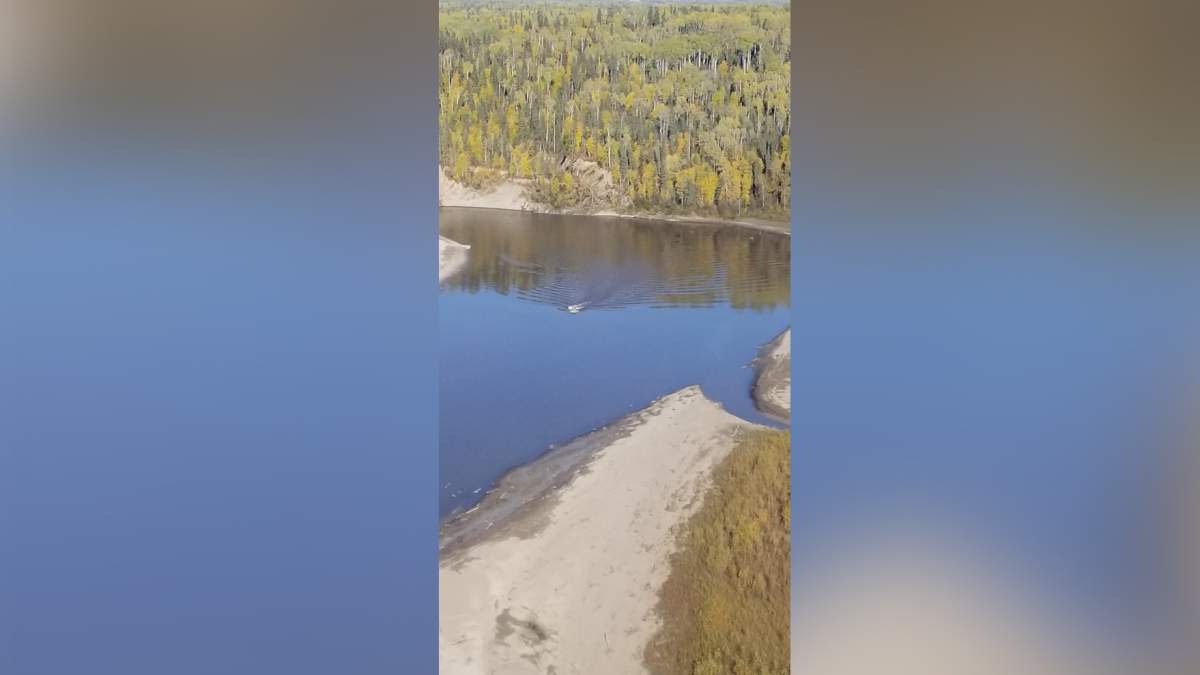An Alberta man has lost his hunting and guiding privileges in B.C. following an investigation that included cross-border help from the U.S. Fish and Wildlife Service.

The B.C. Conservation Officer Service (COS) says Richard Todd Bunnage pled guilty in May to being involved in an illegal guiding operation by Tenaka River Guide Service in northern British Columbia.
According to the COS, in September 2018, a party of non-resident hunters were guided in several locations outside the designated guide territory. And during those hunts near Fort Nelson, a moose and a black bear were illegally harvested.
Sparking the investigation was a pilot who discovered a moose carcass along the Muskwa River.
“A ‘trophy photo’ circulating on social media appeared to show a moose killed in the same area,” the COS said on its Facebook page.
“The pilot, suspecting the area was outside guiding territory, later flew back and retrieved what was left of the moose carcass — a leg.”
The COS said the pilot delivered the leg to conservation officers, who then identified the suspected hunter and tracked him to his home in the U.S.
Notably, the COS said the social media post was found by a complainant and forwarded it to them.

“With the assistance of officers from Utah Fish and Game and the U.S. Fish and Wildlife Service, a DNA sample was taken from the moose carcass in his possession,” said the COS. “It matched a sample from remains at the B.C. scene.”
The COS said officers later learned a black bear had also been illegally harvested during the same excursion.

Get daily National news
It added that Bunnage recently pleaded guilty to making a false statement and being a party to an offence by a guide outfitter in an area outside of authorization.

Along with losing his hunting and guiding privileges, the COS said Bunnage was also fined $9,200 under the B.C. Wildlife Act.
The COS said most of the fine will go to the Habitat Conservation Trust Foundation.
Global News has reached out to the COS for more information.
In an interview with Global News, Conservation Officer Jeff Clancy in Fort Nelson said the fine was roughly what they were expecting.
“We can always hope the fine amount reflects the deterrent factor,” said Clancy. “We hope there’s a deterrence factor behind it for other non-compliance in the future.”
Regarding the help from the U.S. Fish and Wildlife Service, Clancy said reaching out to out-of-province agencies is common.
“Those partnerships are extremely valuable,” said Clancy, who noted the case not only involved a multi-agency effort, but that it also consumed many hours.
Lastly, Clancy agreed that the pilot played an important role in the case.
“We’re actually looking into a reward program for that pilot,” said Clancy. “It should be known that there are rewards available for people who come forward and report non-compliance like this where it leads to a conviction.”








Comments
Comments closed.
Due to the sensitive and/or legal subject matter of some of the content on globalnews.ca, we reserve the ability to disable comments from time to time.
Please see our Commenting Policy for more.